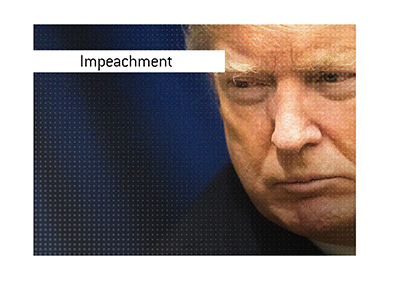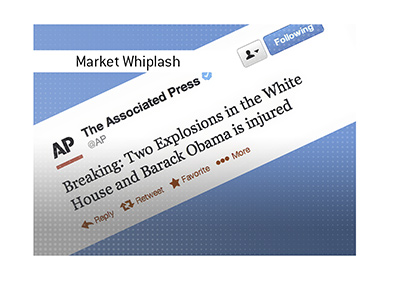Impeachment Is Just The First Step Towards a President Being Forced From Office
 If a President is impeached, does it mean that they automatically have to leave the White House?
If a President is impeached, does it mean that they automatically have to leave the White House?The short answer to this question is NO.
The long answer?
To start, let's look at the definition of the word "impeach" as it applies to US politics:
Impeach - charge with misconduct
Let's be clear - an impeachment is a CHARGE, it is not a guilty verdict.
Essentially, if a President is impeached, they have been the equivalent of charged with a crime. A person that is charged with a crime is not automatically found guilty, just like a President that has been impeached is not automatically found guilty of misconduct.
The House of Representatives has the sole power to impeach and can do so with a simple majority vote. For instance, the impeachment of President Clinton passed with a majority, and the impeachment of President Trump is very likely to pass as well. At the time of President Clinton's impeachment, the Republicans controlled the House, while nowadays it is the Democrats that control the House. So, in the case of President Trump, the Democrats will have the power to vote affirmative on impeachment.
When the House votes to approve the impeachment of a President, the Senate then takes over the power, as they will TRY the impeachment.
A trial is held, and at the end of the trial, a vote is held to acquit the President or find them guilty and remove them from office.
In the case of the Senate trial and vote, a 2/3rds super-majority is needed to remove the President. In the case of President Clinton, there weren't enough votes to have him removed as President, and there almost certainly won't be enough votes to remove President Trump as well.
So, essentially, the Senate will say that President Trump is "not guilty" (by virtue of not having 66.67% of the votes) and things will return to normal, just as they did in 1999.
-
I think that things get confused because of President Richard Nixon.
President Nixon was impeached and then resigned before the Senate trial, as it had become a near-certainty that the Senate would find him guilty after the release of the "Smoking Gun Tape". Members of his own party had told President Nixon that his fate was sealed and that resignation was the only option. On August 9th, 1974, President Nixon resigned from office.
Impeachment, however, does not mean that a President is automatically removed from office.
Four Presidents have been the subject of impeachment inquiries - President Andrew Johnson, President Bill Clinton, President Richard Nixon and President Donald Trump.
President Johnson and President Clinton were both acquitted by the Senate after having been impeached by the House, and it is very likely that the same thing with happen with President Trump.
If your party controls the House, you have the power to impeach a President by a simple majority, though convicting the President in a senate trial is much, much more difficult.
Filed under: General Knowledge



